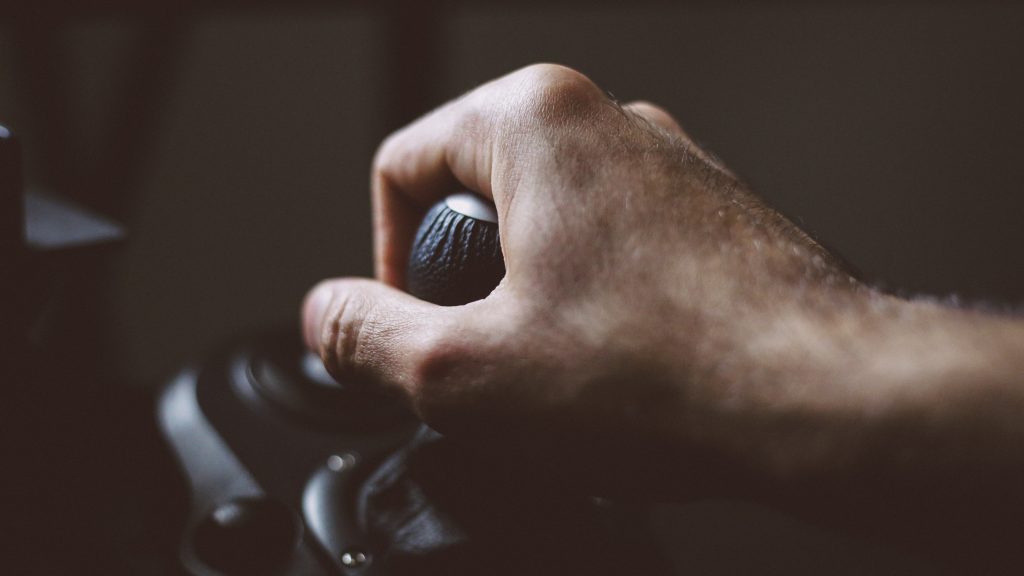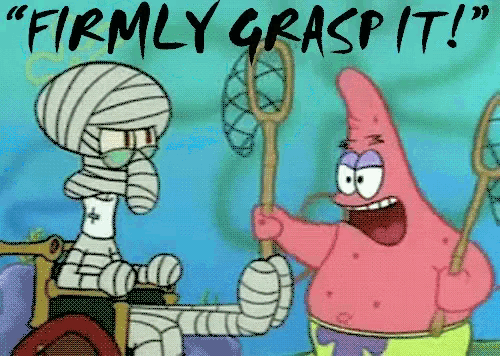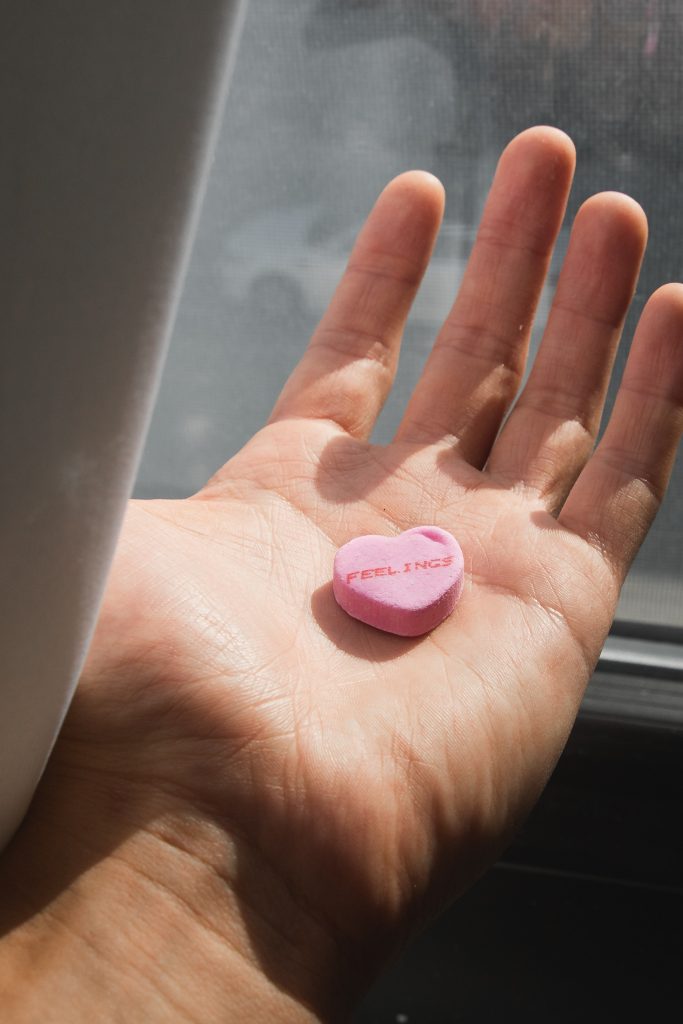Humans and masturbating go hand in hand.
Let’s talk about jerking off. It’s a natural thing, sure; healthy, even.
Engaging in a lil’ self-lovin’ can improve one’s physical and mental health, according to trusted source Planned Parenthood:
- Releasing endorphins (feel-good chemicals) with orgasm
- Release tension and stress
- Help a person sleep better
- Improve self-esteem and body image
- Make a sore tired body feel better
- Strengthen muscle tone in pelvic areas
- Answer the age-old question of “What do I like?” or “What gets me off?”
Yes, I’m certainly pro-masturbation (you can put that on my tombstone). It’s fun, it’s good, it makes you feel all wiggly (if you’re into that kind of thing).
Sometimes it’s hard to be into masturbation due to culturally-instilled guilt or shame. And sometimes it’s tough to get started because it’s frustrating or hard to orgasm, or a person doesn’t quite know what to do for their own body to feel good.
At times masturbation goes awry because folks do it too much. Generally a rule of thumb is that a thing isn’t really a “problem” unless it’s causing psychological distress, or interfering with one’s responsibilities, work, or their relationship or social life. I’m here to talk about that final point today, as sometimes masturbating makes it hard to orgasm with a partner in real life.

Let’s talk about death gripping. What is death grip? Death grip is a colloquial term used to describe masturbating in such a way that it’s then hard to reach orgasm with a partner in a real-life situation. Now, this term is generally used to describe a type of cisgender men’s masturbation (gripping that thing real tight), but of course this phenomenon can happen to someone of any gender, as they might become accustomed to a certain type of pressure or stimulation on their genitals to reach orgasm (think a tight fist, a rumbly vibe, my own brand of strokin’, whatever works). That said, I’ll model this article in the direction of cis men, though what’s said within can apply to anyone.
Now, spoiler alert: orgasm isn’t always the final destination of sexual activity. Sometimes it’s just fun to do whatever. Maybe it’s just a hot makeout sesh, maybe we got some oral going, maybe it’s sex with some teasing and denial, maybe it’s a whole-ass marathon. That’s all well and good, because goal-oriented sex can be stressful (think: “This sex wasn’t worth it at all because we didn’t cum! What a travesty.”) Going with the flow can be a sure bet.
However, sometimes when a partner does not orgasm, whether by their own volition or because they cannot in a moment, that can be stressful, either for the person or for all parties involved.
Sometimes not orgasming (if you want me to really medicalize this the term is “anorgasmia,”) can be caused by a variety of factors: plain ol’ tiredness, not wanting to, “not really feeling it,” lack of arousal, time of day or hormone cycle, stress or being “in your head” during sex. Sometimes folks can’t orgasm because of a medication they’re taking (particularly SSRIs) or a medical condition (like something cardiovascular, or a pelvic floor dysfunction). Sometimes folks deal with desire or arousal non-concordance (“Wow this is really hot WHY AM I NOT DOING IT”), where the body’s physiological arousal does not line up with one’s desires or mental state.
And sometimes anorgasmia can be caused by death gripping the shit out of one’s genitals when masturbating so IRL sex feels like “not enough” stimulation.

I get it; “doing it yourself” means we get accustomed to a certain way of doing it, whether it’s the way one loads the dishwasher (“NO, the dishes have to face to the LEFT”) or the way someone masturbates (“And I need to set the vibrator to setting 7 because that’s the correct rhythm”). And it’s true, same as a person’s hands will have trouble replicating setting 7, a plush pussy isn’t going to match an unlubed rough handjob.
I get it — our culture majorly emphasizes the importance of an orgasm, or being able to bring a partner to orgasm. And consequently when that doesn’t happen, a person or the whole sexual experience or act can feel like a failure. Particularly when we have a bunch of societal jokes about men just blowing a load when a breeze rolls in or whatever.

Many people feel crummy when a partner doesn’t orgasm. And because of sexist social scripts about men’s ease of reaching orgasm, it can be particularly devastating-feeling for folks in a situation where a man doesn’t reach orgasm in a sexual session, both for the man in question as well as his any-gender partner(s).
“Am I attractive enough?”
“Does he like me?”
“Is he thinking about someone else?”
“Is he gay?”

Let me stop you right there.
Someone being able to reach orgasm or not in a sexual session isn’t indicative of one’s worth or attractiveness. Nor is it indicative of a sexual preference or orientation they might have. All of these are sexual scripts (It’s how and why these lines of thinking feel familiar to you even if you haven’t been in this situation yourself — yet). We’ve seen them on joking daytime sitcoms, or as a major stressful plot point with the main character being the butt of the joke at the end in some rom-com movie after one too many vodka cranberries.
And yet, men (humans) aren’t sex-robots that can perform on command. Sex is stressful for folks of any gender but it can feel particularly demanding for someone whose sexual role is prescribed to have a spotlight on his dick at all times: How’s it look? Is it big enough? Did I get hard enough, quick enough? Do I have enough stamina? Did I cum at the “right” time? Was the jizz enough? And so on.
Sex is hard, it’s work, it’s mentally and physically taxing. And while we’re deconstructing scripts around sexuality for empowerment of women and LGBT folks and folks of different ability levels and races and cultures and so on, it’s still important to remember that all sexual stereotypes can be grating, even those for persons in positions of privilege too. Sexism and poor sexual scripts and examples hurt pretty much everybody. So, about that —
There are potential connections between difficulty reaching orgasm, death gripping, and porn. Porn usage and masturbation are so linked for cis men that some balk at the suggestion that one can do one without the other. It’s so ingrained in our culture that it’s totally assumed that one goes with the other. And yet, some folks masturbate without porn, in whatever medium. So what role does porn potentially play in sexual dysfunction or inability to reach orgasm?
Porn is hotly contested as either neutral, good, or bad. I’m not here to cast a ballot in any direction but will say that studies have shown potential damaging effects of porn on sexual function. Because men are the main demographic that uses widely-popular video web porn in the USA, it stands to reason that if there are deleterious effects associated with porn usage that men are therefore the demographic that may be most negatively impacted. And the negative impacts of porn can be quite negative.

Your brain on porn is a great and scientific resource for understanding the potential negative effects of porn usage.
Per the article “Evolution has not prepared your brain for today’s porn” on YBOP, It’s thought that porn usage which uses the dopamine circuit in the brain (the pathway of wanting and seeking behaviors) and this is correlated with experiences of seeking novelty (in this example, seeking novel sexual stimuli or novel sexual partners). The problem is, if one’s brain becomes accustomed to this (as one’s might if they are a frequent porn user), a person might become addicted to the dopamine rush, seeking/searching behaviors, novelty, and associated brain pathways may become strengthened, including increased emotions (including “guilt, disgust, embarrassment, anxiety & fear”), or increased brain associations with “voyeurism, searching/seeking and endless novelty… fetishes, multiple porn stars, multiple tabs, strange acts, shock, surprise, anxiety, etc.” This might alter one’s sexual conditioning, changing their values and beliefs around sexuality, and ways that they might feel they need to have sex, or get turned on. What does this means for the context of the subject matter in this article? This article mentions that porn usage is linked to lower sexual arousal, and lower reports of sexual or relationship satisfaction. Becoming accustomed to the effects of porn, or having porn as a primary sexual relationship in one’s life, may impact one’s ability to desire or experience sexual pleasure from IRL sexual contact.
(This article here is just a brief overview of the above points, so please check out that website or do your own searches to find more information on the above, if you’re interested. Please remember to be a critical consumer of media and try to understand if you are looking at legitimate sources or just reading something from an industry trying to capitalize on you consuming their product or buying something, which the porn industry is notorious for.)
The picture I’m trying to paint here is, there are many folks at home, where porn is their main sexual outlet, jerking off to porn in a certain way they become accustomed to, and then find it hard to have the sex they want to have when faced with an IRL partner.
So we’ve reviewed what death grip is, what makes it hard to orgasm, and various contributing factors. So the question now is, what do we do about it? How do I stop death grip? How can I cum more easily?
Some ideas —
How to treat death grip
- Take a masturbation vacation. I know, I know, I’m not telling you to stop playing with your favorite toys. But you might have noticed after staying at your parents’ house for a week-long vacation, returning back to a regular routine after a break can feel wham-o grrreat on the ol’ genitals. So, it’s helpful to know that stopping the repetitive behavior of death-gripping is a major way to resensitize one’s genitals to the more delicate and varied human touch. Sometimes a few weeks makes a difference. Sometimes a person may need to stop masturbating for a period of a few months. It can feel like a big commitment and there’s no glossing over this fact. Assess how important it is to you to want to hit the “reset” button on your junk. And recall, if you’ve been manhandling your junk for years, yeah, just taking a week off might not cut it to give ‘em some time to heal and recalibrate. Masturbation will still be there as an option waiting for you after all this.
- Stop using porn. Another arrow right to the heart? So much research has shown that porn can decrease a person’s ability to feel as aroused when intimate with a real-life partner. The brain will need a cooling-off period from porn use to recalibrate its seeking, arousal, and reward/pleasure circuits to real-life sexual contact. Again, make an agreement with yourself if you feel committed to working on this goal. Would you prefer to feel increased sexual pleasure with an IRL partner? That might have to come at the expense of porn. For the time being, anyway.
- Experiment with other types of touch (despite frustration). Listen, if we’re ditching Thanos’s glove as a cock grip or your vibe-o-matic-3000 and going for some real-life human touch, I get it might feel like a freaking feather barely ticking the ol’ genitals. And that’s fucking frustrating. But again, I would say give it some time and allow yourself to experiment with other types of physical pleasure for the time being, which brings me to my next point —
- No-goal sex and less focus on erection and orgasm. Being intimate doesn’t just mean making an agreement to “get me there.” Sometimes intimate acts and focusing on the pleasure in the moment can feel fucking fantastic and release one from the Keeping-up-with-the-Joneses-style of having sex which can feel transactional, stressful, and rushed. Maybe we can decenter “getting there” and focus on pleasure, intimacy, and connection, and this can build one’s sense of trust and safety in a relationship, thereby making connection and pleasure easier to achieve.
- Broaden sexual menu to include activities where a spotlight isn’t aimed directly at your cock. (Or clit.) This goes in line with the above, but I want to reiterate it because it’s fucking stressful to feel the spotlight pointed at you. And you don’t think that stress affects your sexual performance? Or your ability to be in the moment with your partner, focusing on the pleasure you want to be feeling? Let’s get out of our heads and broaden the scope. A sexually intimate activity can be cuddling, or demonstrating the way that one masturbates and what feels best without needing to get there, or making out and laughing and giggling, or whatever. People are like, “Remember when we were kids and we could just make out for hours?” Yeah, because you allowed yourself to be in the moment more, and were rolling high on the pleasure and intoxication of another person’s presence and energy. It’s possible to recapture that energy now, but one must work to practice on exiting sexual scripts that hold them in bondage.
- Manage any symptoms of anxiety/depression etc., or any other medical conditions. Sometimes a medical condition affects sex and one’s ability to feel pleasure. I highly recommend that if this is an issue that continues to affect you, seek medical care from an appropriate provider. I know it can be daunting to talk about sex with a medical provider, but it is a necessary conversation to have to dot all the i’s and cross all the t’s.
- Get used to sexual contexts, increase intimacy with partner, get used to self-pleasure in various ways, spend time with intimacy that is not goal oriented. I’m beating the dead horse, but this not only applies to your relationship with others, but also your relationship with yourself. Evaluate your relationship with sexual contexts, whether alone or with a partner. Do you shy away from sex scenes on TV or feel embarrassed or guilty? Do you turn the volume way down on porn even if you live alone? Do you find yourself in your head during sexual encounters? Find yourself looking at the clock? Evaluate your relationship with masturbation. Do you just do it to fall asleep? Is it habitual? Are you feeling sexual desire at all or is it like, “Welp, it’s 10pm again”? Are you just trying to get it over with ASAP? Take a good look at your relationship with sex. Work on incorporating more sexual self-exploration and less “doing the routine” i.e. Take a look at your vulva and see what’s what. Try touching differently or in different spots and see how it feels. See if you can recognize where you’re at in your sexual response style, and how it feels to hold off on or not orgasm at all in a session. Etc.

- If you’re gonna jack off, try different sensations and pressures (like using lube and fleshlights). Look, I’m not the masturbation police so I understand if you saw the above and were like, “Aww hell naw.” Or maybe you have been taking a masturbation vacation, saw some positive results, but do want to titrate it back into your routine. I would say, try stuff that simulates more IRL sex. Try having your eyes open, try straining your muscles less, try different lengths of time, or sensations or pressures, try lube. Sometimes folks use a fleshlight to stop themselves from death-gripping the ol’ peen and feel this simulates sex better and allows them to get used to orgasming in contexts that more closely approach IRL sex.
- Now that you know what might work better, Communicate during sex which positions give more feeling or stimulation. I know communicating during sex or about sex is stressful. Honestly, all of the above can feel stressful. And yet, the more we do something, the less stressful it feels. You’re valid if you stop someone and are like, “Hey, actually, my clitoris is over here.” Or, “That’s not really working for me because of the teeth feeling, can we try this instead?” You’re allowed to say, “Oh my goodness it felt so good when we did it doggy last time, can we try it again?” or “I’m still getting used to the feeling of condoms again, can we try again later?” (The answer is yes, awesome, let’s get some pizza for now.)
- Find condoms with the right fit. Guess what? One size might not fit all. Try some different options. Here’s a great resource – https://myonecondoms.com/
- Seek sex therapy/counseling. Sometimes it’s soooo helpful to talk about this with a real-life person who can hear you out, empathize, and offer affirmation or advice, whatever you’re looking for. Dealing with this on your own can be daunting, and it may be hard to self-motivate to work on this. Counseling can offer catharsis to decrease anxiety felt around sex.
- Engage in open conversations with partner. Sometimes I feel like sex is so stressful because it’s so taboo. The more open and honest conversations we have about it, the less terrifying it may feel. Engaging in open conversations may help to increase one’s feeling of safety or intimacy in a relationship, which bodes well both for the relationship and for one’s sex life.
- Curb the negative self-talk. Look, I get you might feel crummy, or like a failure. And yet, reiterating that point to oneself does not solve the issue; in fact it can make a person feel worse or keep someone stuck in the inertia of the problem. Affirmation, love, and forgiveness are important traits, not only in a relationship with a partner, but also in one’s relationship with oneself. Notice when you’re talking smack on yourself. Work on cutting it out. I’m not saying we have to replace every “I suck” with an “I’m so fantabulous;” aiming for neutrality is a worthy goal (this might look like, “I’m working on this,” or “I fucked up but I picked myself back up” or whatever works).
- Develop healthy eating and exercise routine. Sex is something your body does. Yes your brain is the biggest sexual organ, etc. But your body also uses physiological pathways to feel arousal and experience pleasure, and taking care of your body can yield positive results with regard to sexual stamina, pleasure, and orgasm. Think of all the body’s pathways that are involved in sex: cardiovascular health, mental health, muscle tone, etc. Giving your body the right nutritional building blocks and allowing your body to have better muscle and cardiovascular health can only help.
- Seek medical care when necessary (if concerns might be medication or lifestyle induced). Maybe there’s something you’re missing that can be a culprit that no amount of porn-abstaining or broccoli-eating can resolve, and it’s ok to seek medical care if there’s something that just isn’t budging the results you’d like to achieve (for example, you can’t meditate your body into producing a right amount of testosterone if that is a contributing factor). Get an eval and a check-up and ensure the body’s in good working order, and get steps from doctors on your team about any loose ends they advise tuning up.
Happy pleasure-seeking!

Further resources which might be helpful or interesting —
https://apps.apple.com/us/app/brainbuddy-quit-porn-reboot/id726780077